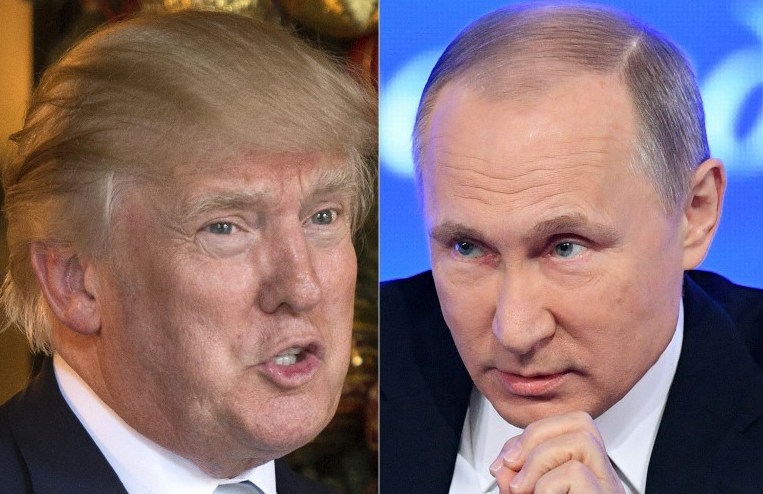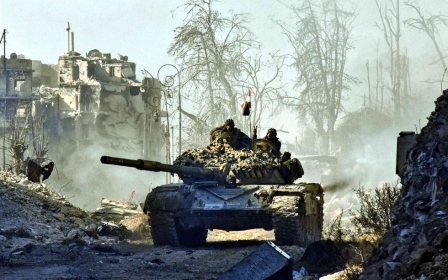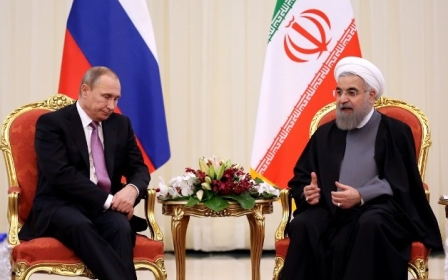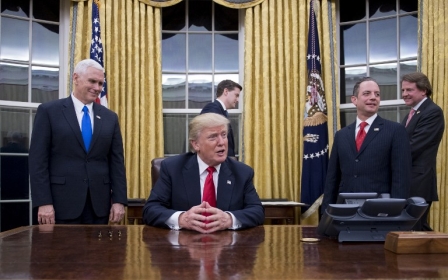Trump and Putin: Deal or no deal?

In his bid to improve relations with Russia, President Donald Trump has hinted that he would consider sanctions relief – but being a deal-maker, he is unlikely to lift them as a good-will gesture alone. Naturally, he will want something in return.
'If you get along and if Russia is really helping us, why would anybody have sanctions if somebody’s doing some really great things?'
-President Donald Trump
However, the extent to which Russia can actually offer the US something meaningful without damaging its own interests is somewhat limited, particularly given that its main interest is to refrain from conceding anything to the US that does not at least seem to be on Russia’s own terms.
So a critical question remains: for Trump, how much is enough? Does he want a substantive offer or would he be content with more of a photo opportunity to show how he "fixed" the Russia-US relationship?
The somewhat anti-climactic 28 January call between Trump and President Vladimir Putin shed little light on the answer to that question.
Many feared that Trump would signal some deal on at least a partial lifting of sanctions, but the read-outs from the calls made no mention of them. The White House statement was particularly vague and short, which could mean that either some details were not disclosed or nothing that substantial was said.
Still, prior to the call, Trump had noted that it would be "very early" to talk about lifting sanctions. Kremlin spokesperson Dmitry Peskov echoed this sentiment after the call, signalling that the Russian government is willing to wait and see how things unfold.
A little sanctions relief
Despite this, Trump has hinted even prior to his inauguration that he thinks there is a deal to be made. One vague suggestion seemed to reference both nuclear arms control and the lifting of sanctions, although as Sergei Lavrov rightly pointed out, the actual link between the two was not entirely clear.
It seems the most specific initiative to come out of the Putin-Trump call may be US-Russia cooperation on countering the Islamic State (IS) group, particularly in Syria
An unverified dossier compiled by UK-based corporate investigations firm Orbis Intelligence and published by Buzzfeed indicated that an oil and gas deal with state-owned energy giant Rosneft might be the grounds for lifting sanctions, but this idea, according to the report, seemed to fizzle in October 2016.
Clearly, there is little indication that Ukraine will be the main subject for discussion, despite the fact that it was the reason for the sanctions in the first place and fighting in the country has recently escalated.
Instead, it seems the most specific initiative to come out of the Putin-Trump call and the strongest proposal on the table may be US-Russia cooperation on countering the Islamic State (IS) group, particularly in Syria.
READ: Why Trump has Tehran in his crosshairs
Trump has noted that “if you get along and if Russia is really helping us, why would anybody have sanctions if somebody’s doing some really great things?”
Part of the problem is that even "cooperating" against IS is vague. Although it was Russia’s rhetorical justification for entering the conflict in Syria, the country’s main aim in Syria has been to bolster Assad’s position against opposition groups rather than countering IS.
The conflict has also drawn foreign fighters from the North Caucasus out of Russia itself, helping to dispel part of the problem domestically.
At the same time, with Russia heavily invested in the political peace process in Syria, IS is a major obstacle to long-term stability in Syria. It is not completely outside of Russia’s interests to share intelligence and hit a few IS targets in collaboration with the US if it means a better prospect for sanctions relief.
This, however, does not seem enough in itself for Trump to give up the leverage embodied in sanctions, and it seems a rather weak trade. It is unclear, therefore, what Trump really wants from Russia in foreign policy terms.
A break from past policy
One thing that is clear, however, is that he does not have the same approach to Russia as previous policymakers. Trump’s tone change alone is a break from past policy, and so far he has delivered on other pre-election promises. One of those is to improve relations with Russia.
Those with more direct diplomatic experience dealing with Russia have warned Trump about how difficult it will be to find a compromise. Outgoing Defense Secretary Ash Carter stressed that Trump should not overestimate the areas where Washington and Moscow’s interests align, let alone find ways in which Russia is willing to cooperate that are not detrimental to US interests.
However, such advice assumes that Trump has the same motivation and values as those in Obama’s administration, as well as much of Europe, which is clearly not the case.
READ: White hate in the White House: Anti-Muslim buzz words that swept Trump to power
Moreover, although Trump has followed through on policy promises, that is not to say he has implemented them effectively. Recent events have revealed that he has little knowledge on how policy processes work. Moral and legal questions aside, the absolute chaos caused by his executive order on immigration highlights this.
Senators John McCain and Lindsey Graham have criticised Trump’s unwillingness to involve relevant government departments to get policy advice on feasibility of implementation, his ignorance of policy process and his failure to plan for some of the consequences of his actions.
Anticipating some of the consequences of actions is not just a relevant skill for policymakers, but also for those wanting to get a good deal. The absence of this in the case of the executive order on immigration makes one question how effective a dealmaker he may be in the new context of politics rather than business.
Protecting leverage
In reality, Trump will find it more challenging to unilaterally lift sanctions given strong opposition from many, particularly highlighted by the bipartisan bill to strengthen sanctions on Russia led by McCain and Graham.
Any real deal may be stymied. Still, Trump’s change in tone towards improving relations has provided good impetus for Russia to explore its own options.
Although it constitutes a highly unlikely plan, Lavrov’s announcement that Russia would support a US initiative on "safe zones" for refugees in Syria, albeit with the approval of Damascus, was a cautious endorsement of at least opening a door to the US on issues that are not related to Ukraine.
READ: Donald Trump, democracy is not just something you pick off the sidewalk
However, a transactional deal is hard to see given not only internal dissent in the US administration towards lifting sanctions but also a lack of tangible trades that look good enough.
If Trump is a true dealmaker, he will not want to give up the leverage of sanctions too easily, and there is a risk that Russia becomes impatient and dismisses Trump as a repeat of his predecessor and European counterparts.
Yet Trump wants to deliver on his promise of improvingUS-Russian relations. This may, therefore, be more a test of Russia’s ability to sell its own deal, rather than rely on Trump to push for his own.
- Sarah Lain is a Research Fellow at the Royal United Services Institute, a London-based independent think tank. Her research mainly focuses on Russian foreign policy and regional dynamics in Central Asia.
The views expressed in this article belong to the author and do not necessarily reflect the editorial policy of Middle East Eye.
Photo: President Donald Trump in Palm Beach, Florida and President Vladimir Putin speaking in Moscow (AFP)
New MEE newsletter: Jerusalem Dispatch
Sign up to get the latest insights and analysis on Israel-Palestine, alongside Turkey Unpacked and other MEE newsletters
Middle East Eye delivers independent and unrivalled coverage and analysis of the Middle East, North Africa and beyond. To learn more about republishing this content and the associated fees, please fill out this form. More about MEE can be found here.





